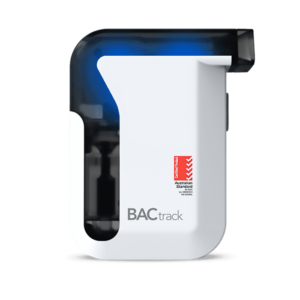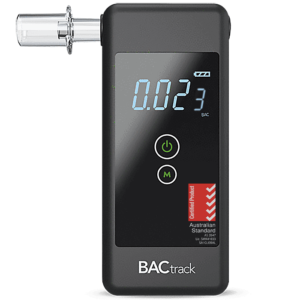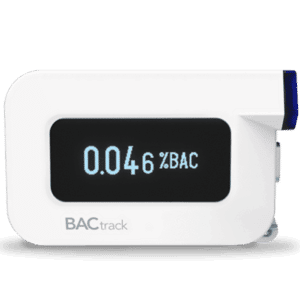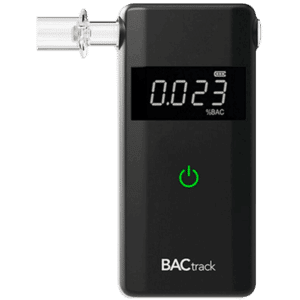Workplace Alcohol Policy: What It Is & How to Develop One
01 May, 2024

A workplace alcohol policy is a set of guidelines to maintain a productive and safe working environment by managing the consumption of alcohol. Accordingly, there are relevant factors to consider when developing an effective policy. Foremost, define the purpose of the policy statement and establish clear guidelines. It helps workers to understand the policy. Subsequently, outline the consequences for employees who breached the guideline. It is also crucial to offer support and review the policy regularly.
Harmful alcohol consumption in the workplace can present various challenges. It can increase safety risks and decrease workplace health and productivity. As a result, employers implement workplace policies regarding alcohol abuse or alcohol misuse. It is essential for addressing alcohol and drug-related hazards. It helps protect the safety of workers and maintain a productive workplace. This article will present alcohol policy in the workplace, how to develop one, and the scope of the policy.
What is a Workplace Alcohol Policy?
A workplace alcohol policy is a safety initiative plan that businesses implement to manage the consumption and effects of alcohol. Its primary aim is to ensure workplace safety, productivity, and health. Nevertheless, the policy outlines the expectations and responsibilities of both the employer and employees. It clearly defines the code of behaviour required and unsafe work practices.
The influence of alcohol in the workplace can lead to adverse impacts. It can reduce work performance, increase the likelihood of accidents, and can have a negative impact on occupational health. The extent of alcohol can also result in absenteeism. Additionally, the risk of alcohol consumption can damage workplace relationships, company reputation, and the overall company culture.
Australian employers from various sectors often strictly implement such policies. It is common in safety-critical duties. It may include medical practitioners, manufacturing, transportation, mining occupations, and construction workers. However, it is also prevalent in corporate offices and other work settings. These settings mainly focus on maintaining a safe, efficient, healthy work environment.
Importance of Having a Clear Policy
- Promotes the Safety of Employees: Companies can substantially lower the chances of work-related risks by regulating the consumption of alcohol.
- Boosts Productivity: A clear policy helps prevent alcohol-induced distractions. It enables employees to maintain a high level of productivity.
- Encourages Professionalism: The policy sets standards in relation to behaviour.
- Supports Occupational Health: Businesses show they care about the health of employees by providing guidelines and alcohol support networks.
- Reduces Legal Challenges: Implementing a policy helps protect organisations from legal issues arising from alcohol and drug-related problems.
- Enhances Company Reputation: The policy signals that the company values a safe and productive workplace.

How to Develop a Workplace Alcohol Policy
Developing a workplace alcohol policy requires careful planning. Begin by examining any existing policies. It helps identify gaps and areas for improvement. Accordingly, the company must seek advice from legal experts. It ensures that the policy complies with laws and workplace practices. Then, clarify the purpose of the guideline. The scope should clearly state where and when the policy applies.
Clearly outline unacceptable behaviours and the possession or distribution of alcohol on company premises. It may also include the prohibition of illegal drugs. Additionally, the policy may contain the testing procedures (urine tests, saliva tests, and breath tests). It may also involve the reasons for testing (pre-employment, reasonable suspicion, post-accident, and random testing.
Explain also the disciplinary measures. It may involve warnings, grounds for transfer, suspension, and dismissal for breaches. Furthermore, provide information on resources available. It may include Employee Assistance Programs (EAPs), health services, and external support resources. Moreover, ensure every employee is aware of the policy. It may involve education programs and reminders on the company intranet or company noticeboard.
Involvement of Management and Employees
Developing an effective policy is a collaborative effort. The management takes the lead by recognising the need for an alcohol policy. They conduct research to understand legal requirements and best practices. Subsequently, the management drafts a preliminary version of the policy. Afterwards, they open the floor for feedback from various stakeholders and employees.
As such, employees provide their input through surveys. It is their opportunity to express concerns and suggest improvements. Also, a representative group of employees from different departments is given the chance to review the draft policy. Management and employees collaborate to make adjustments and present an effective policy.

Scope of a Workplace Alcohol Policy
The scope of a workplace alcohol policy applies to every employee without exception. It maintains professional conduct at all times. Nevertheless, this policy mandates that all employees must adhere to the guidelines set forth regarding alcohol use. It is regardless of their position within the company. It aims to foster a safe, healthy, and productive work atmosphere that respects the welfare of every individual.
Moreover, the policy provides specific rules to manage alcohol consumption responsibly for company events and functions. These rules ensure that all professional gatherings maintain a decorum that reflects the values and standards of the company. Employees are expected to exercise sound judgment and moderation. It keeps their behaviour in line with professional expectations.
Regarding remote or off-site work, the policy acknowledges the changing nature of the workplace. Thus, it extends its guidelines to include any work outside the traditional office environment. It ensures that companies are aware that the standards of the company for professional behaviour apply at all times. It is particularly essential for a flexible working culture.
Responsibilities Under the Alcohol Policy
Firstly, employees must familiarise themselves with the details of the alcohol policy. It empowers them to make informed decisions about consumption in any work-related context. Employees are also responsible for moderating their behaviour. It includes abstaining from alcohol if it could negatively impact their work performance and compromise safety.
Additionally, workers are expected to look out for their colleagues. It involves being attentive to situations where a coworker may be struggling with adherence to the policy. Reporting is another critical aspect of the responsibility of the employee. It includes promptly disclosing any violations they witness. It helps the company to address the issue effectively.
Conclusion
In conclusion, having a workplace alcohol policy is essential for various industries. It is a strategic plan that companies implement to manage alcohol consumption. Accordingly, the guideline holds great importance. It promotes safety, boosts productivity, and supports occupational health. It also encourages professionalism, reduces legal challenges, and enhances the reputation of the company. Nevertheless, developing the alcohol policy requires careful planning. It involves the participation of the management and workers.
The development begins by examining existing policies. Then, the company seek advice from legal experts. Subsequently, they clarify the purpose of the policy and outline unacceptable behaviours. The guideline may include testing processes, disciplinary measures, and resources. Additionally, all employees should be aware of and understand the policy. Furthermore, the scope of the policy applies to every employee. It provides specific rules for company events and remote workers. Employees must recognise their responsibilities.






























